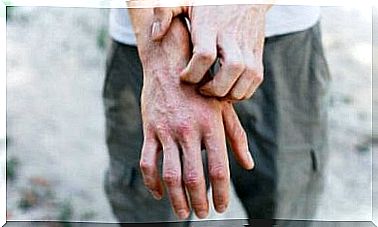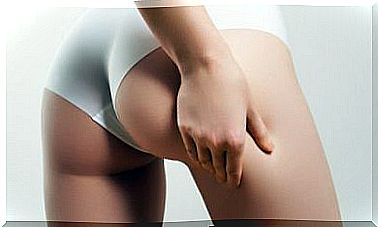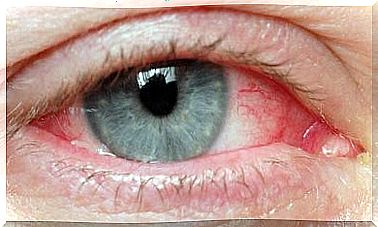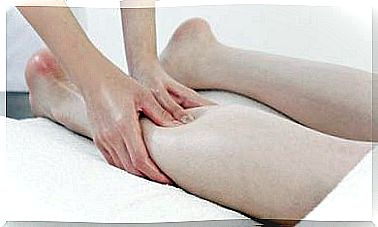Four Types Of Headaches And How To Treat Them

In this article, we will talk about four types of headaches and their respective treatments. The treatment for each type depends on their specific characteristics as well as your habits.
Therefore, knowing the difference between different types of headaches will help you understand what we mean by “severe headaches” and how you can treat each of them. Keep reading so you can find out more.
1. Different types of headaches: Migraines

Migraines are the first type of headache that we are going to talk about. In general, people who suffer from it feel that they can do nothing. That is why they are difficult to cope with.
Believe it or not, migraines are actually hereditary. This means that if you suffer from it, then it is very likely that someone else in your family will do the same.
This is the most common headache, followed by tension headaches. It has the following characteristics:
- The pain occurs in a part of the head and can last for up to three days.
- The pain usually feels like a kind of banging. Then they increase as you move in certain ways. For example, they may get worse when you bend over or get up after sitting.
- Extreme sensitivity to light or sound. Therefore, resting in the dark and in the silence will make you feel better.
- You may even feel nauseous if you do not treat it.
Migraines do not have a cure. However, you can reduce the frequency with proper treatment, physical exercise and stress management techniques.
2. Tension headache
The second type is also known as “primary” headache. Unlike migraines, then popping the pain of tension headaches in occipital, neck bones or forehead. In general, the pain is not so intense and you will not experience nausea or vomiting.
This type is not as devastating as migraines. In general, people with this type of headache can continue their day normally. Sometimes people can even exercise. However, they are much more frequent and can last between one to seven days.
Usually, taking too many over-the-counter medications can lead to tension headaches. This can also be caused by stress, caffeine withdrawal and chafing with the teeth. In many cases , ibuprofen helps to reduce the pain a lot.
Chronic headache

As with the previous headache, this is one of the types of headaches that is usually caused by taking too many over-the-counter medications. The only difference from the previous headache is that it is present almost every day. In fact , people who suffer from chronic headaches usually suffer an average of 15 days a month.
To prevent these, we recommend that you do not take too many medications or at least talk to your doctor first to evaluate which of the medications you are taking is really necessary.
4. Types of headaches: Cluster headaches
The last of the types of headaches we talk about today are cluster headaches. Although it has some of the same symptoms as migraines, it also has some other symptoms:
- Unbearable pain. It often occurs around your eye and on the side of your head.
- Clogged nose and sometimes a runny nostril on the side of the head that hurts.
- Relaxed eyelids and swelling around the affected area.
- Pale skin or redness.
Cluster headaches usually last only a few minutes, but they can appear several times during the same day. Usually this headache appears at night at the same time. Outbreaks of cluster headaches can often last for several weeks.
As with the previous types of headaches, you may want to consider treatments to try to keep these outbreaks under control. However, you may be able to treat them with just ibuprofen or paracetamol.
Do you have any symptoms of headaches that we have talked about? Have you ever been diagnosed with migraines or any of the other types of headaches?
Now that you know about different types of headaches, you can identify them better. Do not forget this: you should only follow the treatments prescribed by your doctor.









